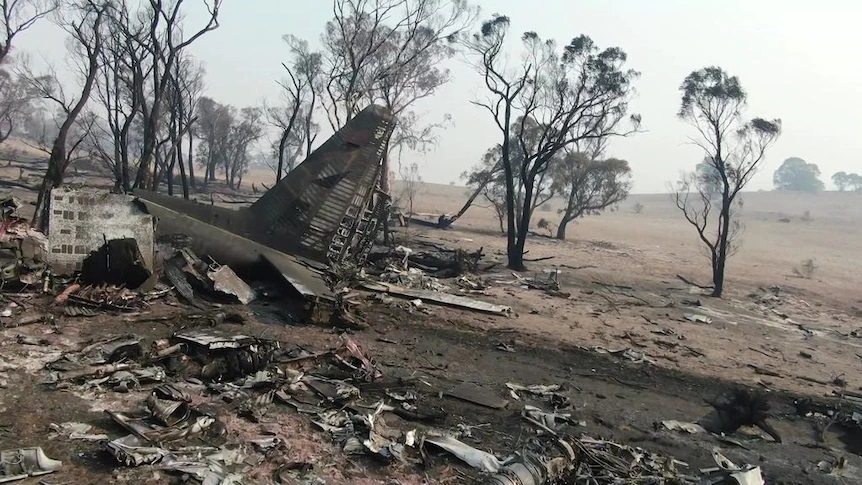Inadequate risk planning before fatal 2020 air tanker crash in NSW, report finds
The New South Wales Rural Fire Service has been criticised over the 2020 air tanker crash that killed three US firefighters during the Black Summer bushfires.
US firefighters Paul Hudson, Rick DeMorgan and Ian McBeth were flying in Peak View near Cooma in January 2020 helping fight the Black Summer bushfires when the Lockheed C-130 firefighting tanker crashed, killing the three men.
“All three were far from home, helping to defend lives and property during the worst fire season in Australia on record,” Australian Transport Safety Bureau (ATSB) Chief Commissioner Angus Mitchell said.

A report handed down by the ATSB found the plane likely stalled as it climbed after dropping fire retardant.
At the time, weather conditions were “hazardous” with gusting winds and the report revealed the aircraft should not have been flying.
“The aircraft likely aerodynamically stalled in hazardous conditions that included windshear and an increasing tailwind,” Mitchell said.
The men likely didn’t know the other smaller firefighting aircraft had stopped flying in the area because of the dangerous weather and the “spotter” aircraft which was supposed to fly ahead of the tanker also refused. “All other aircraft had departed the area and weren’t operating,” Mitchell said.

The ATSB noted the pilot was instead relied on to assess the appropriateness of the flight without having all the available information.
Inadequate risk planning by both the RFS and plane operator Coulson were highlighted as an issue in the report.
“The responsibility for the safety of aerial firefighting operations has to be shared between the tasking agency and the aircraft operator,” Mitchell said.
“This accident highlights the importance of having effective risk management processes, supported by robust operating procedures and training to support that shared responsibility.”
The wife of McBeth, one of the victims, told 9News “those in the best positions to determine if it was safe to send the plane up have let all our families down and they have a lot to answer for.”
“It is a relief to finally receive a report that exonerates the crew and my husband of any wrongdoing.”
“This, of course, does not bring back my husband, or my children’s father, but it provides me some answers.”

RFS Commissioner Rob Rogers acknowledged the aircraft should not have gone up that day.
“In hindsight, clearly it was a dangerous place to be,” Rogers said.
Coulson Aviation CEO Wayne Coulson said the loss of the three crew continues to be “deeply felt” by the company.
“We have full confidence in our aircraft and in our team members, and the safety of our team while conducting aerial firefighting operations across the world remains the number one focus of the organisation,” he said.
The RFS will now overhaul its aviation policies and is promising to provide more detailed information to pilots before they fly, as aerial firefighting becomes more common.








